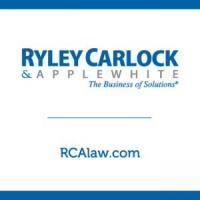A number of entrepreneurial folks have created self-directed IRA, which can be traditional or Roth IRA's, in order to make investments in real property, oil and gas interests, operating businesses, private placements and the like. Self-directed IRA's require a custodian or trustee to manage the IRA, although the owner can direct what it invests in. The Tax Code contains a detailed and complex regime applicable to self-directed IRA's. One of the areas where an IRA owner can find himself or herself under challenge from the IRS is with regard to "prohibited transactions" with "disqualified persons." The list of disqualified persons includes: the IRA owner; his or her spouse and close relatives; certain fiduciaries such as a lawyer or accountant working for the IRA owner; and entities that any of the foregoing individuals control. The term "prohibited transaction" includes the sale, exchange or lease of property, furnishing goods or services, making personal use of IRA assets or pledging IRA assets to secure a loan. Therefore, when a disqualified person engages in a prohibited transaction the tax consequences to the self-directed IRA can be dire, and include causing the IRA to be immediately taxable, with the possibility of penalties and interest charges.
A recent case from the U.S. Tax Court stands as a cautionary tale: Mr. Peek and Mr. Fleck established self-directed traditional IRA's in 2001 with rolled over cash from traditional IRA's. They caused their self-directed IRA's to purchase all of the stock in a new corporation which bought the assets of a company providing alarms and fire protection systems. In acquiring these assets, Peek and Fleck personally guaranteed a promissory note to the sellers for a portion of the purchase price. Several years later they converted these self-directed traditional IRA's into self-directed Roth IRA's and paid the tax at that time. Following several more years during which the business flourished, Peek and Fleck found a buyer for the business in 2006 and had their self-directed IRA's sell all of the company's stock at a significant profit. Upon audit, the IRS contended that Peek's and Fleck's personal guaranties of the seller financing, which still existed until the stock sale, was a prohibited transaction and all of the sale proceeds were taxable income at ordinary tax rates. The Tax Court rejected the argument of Peek and Fleck that they hadn't engaged in a prohibited transaction because their guaranties ran to the company not to their self-directed IRA's. The Tax Court found that these taxpayers had made an indirect extension of credit to their IRA's. The result was that the sale proceeds which Peek and Fleck thought would be free from tax because of the Roth status were taxed immediately as ordinary income and they were made to pay accuracy-related penalties as well.




 />i
/>i
